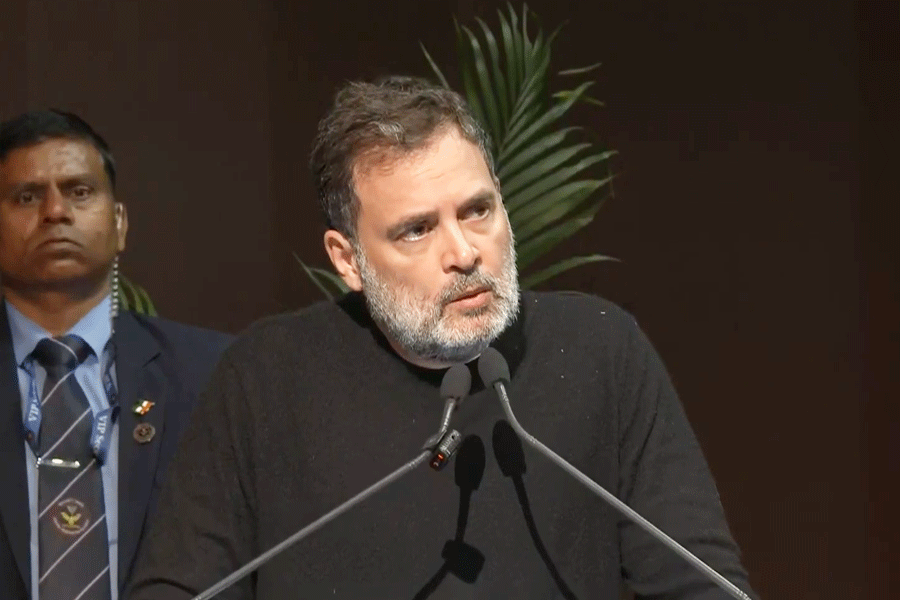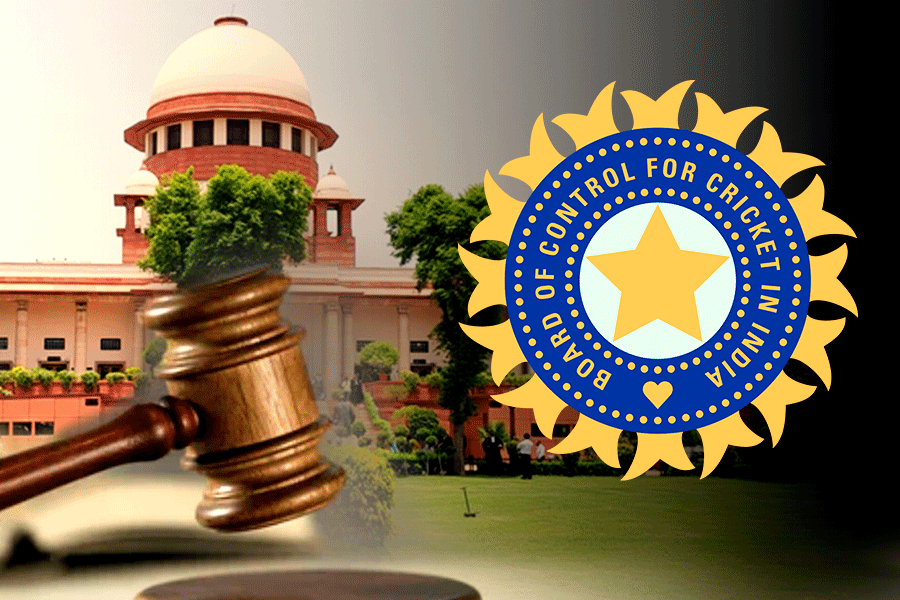FIFTH COLUMN
According to the Election Commission of India, there is a good reason why a recent race for a seat in the Rajya Sabha was determined by the colour - and not the number - of votes. At least a dozen Congress MLAs in the Haryana Assembly filled out their ballots using a pen with royal blue ink, rather than the mandatory violet ink of the officially sanctioned pen, and thereby had their votes invalidated. Conspiracy of some sort is afoot, and the Haryana chief electoral officer is now trying to make sense of a whodunnit starring Congress power broker Bhupinder Singh Hooda, who is the subject of a separate criminal investigation.
Unlike other votes taken in state assemblies, the Rajya Sabha's open ballot election allows members to cross party lines, but it also compels them to show their vote to a designated party agent in order to prevent secret horse trading. This ink law, the EC has explained, is meant to render each ballot indistinguishable, making it impossible for MLAs to display proof of the direction of their vote to potential bribers.
India's most recent general election cost a staggering Rs 30,000 crore, which was reckoned to be the second-highest amount ever spent on an election worldwide; earlier this month, MLAs and their relatives in Karnataka were accused of demanding Rs 5-10 crore for a single Rajya Sabha vote. The violet ink requirement belongs to a patchwork of laws intended to restrict this torrent of cash and corruption. There are both gaping holes -such as the lack of any upper limit on the total amount companies can donate to political parties - and complicated additions that can be manipulated by politicians with apparent ulterior motives. Congress electoral plans were foiled in 2009 because a nominee for the Lok Sabha elections in Madya Pradesh, Rajkumar Patel, "accidentally" failed to submit the requisite original copy of a nomination form.
Administrative trifles abound. The EC mandates, for example, that the room selected for conducting Rajya Sabha elections have two separate doors for the entry and exit of MLAs; that MLAs refrain from all "criss-cross movement"; and that children are allowed inside only if they are "in arms accompanying an elector." Will an MLA bought by the opposition one day invalidate his vote by showing up with a stroller?
Bureaucratic horror vacui is exemplified by controls on ink colour. A United Nations report dates the earliest regulations to an influential set of iron-gall ink standards developed in Germany between 1879 and 1912. A century later, at the dawn of the computer age, the journalist Arun Shourie documented a lively and pointless year-long debate on pen inks among seven different bureaus of the Indian government. Ink colour codes were agreed upon that permitted only officers above the joint secretary level to use green or red. This privilege was later revoked by the Modi government, which has banned all minority colours.
Is the violet ink law comparably silly? A manual published by the EC in 2014 stipulates that nomination papers should not be invalidated on "flimsy" or "clerical" or "technical" grounds, including specifically that they have been "signed in any ink other than blue." Yet a proliferation of such technicalities seems to be the basis for much of the corruption in Rajya Sabha voting. This forbidding complexity was evident in my conversations with current and former high-ranking EC officials: one of them said he had never heard of the violet ink regulation before, while another claimed that it has existed for at least 25 years.
The former official expected that the ink law would now be changed. He suggested that news modes of cheating are always being discovered, and new rules always being devised in response. "It's a cat-and-mouse game," he said. With that anti-corruption strategy, elections won't be simplified anytime soon.










